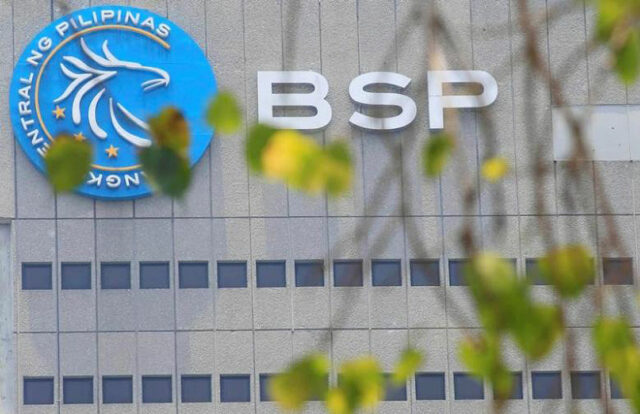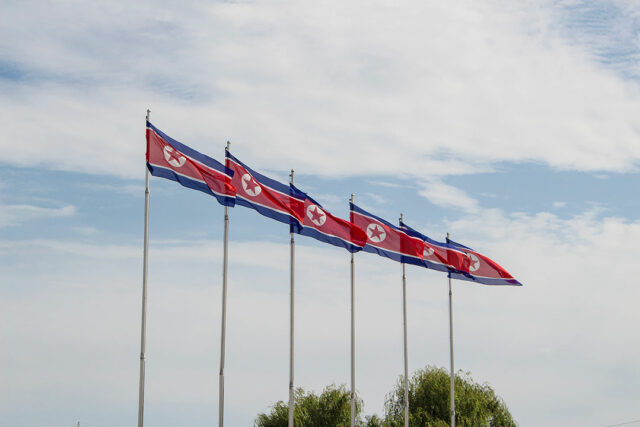By Keisha B. Ta-asan, Reporter
PHILIPPINE BANKS may see an improvement in loan growth this year, as monetary policy easing in the second half may encourage borrowers to take out more credit, BMI Country Risk & Industry Research said.
BMI, a unit of Fitch Solutions, said they expect stronger loan growth in 2024 as better macroeconomic conditions and lower interest rates in the second half may boost credit demand.
“We expect loan growth to accelerate from an estimated 5.7% year on year in 2023 to 10% by the end of 2024,” BMI said in a report dated Jan. 17.
“We also see limited risks to financial stability as the Philippine banking system is underpinned by a strong balance sheet and robust capital buffers.”
Based on the latest data from the central bank, outstanding loans issued by big banks increased by 7% year on year to P11.4 trillion in November 2023 from P10.65 trillion in the same period in 2022.
At 7%, the loan growth rate was a tad slower than the 7.1% expansion recorded in October 2023.
According to BMI, easing inflation will prompt the Bangko Sentral ng Pilipinas (BSP) to start cutting borrowing costs by the second half of the year.
To tame inflation, the BSP tightened policy rates by 450 basis points from May 2022 to October 2023. This brought the benchmark interest rate to a 16-year high of 6.5%.
The overall year-on-year increase in prices of widely used goods and services eased to 3.9% in December from 4.1% in November and 8.1% a year ago, settling within the central bank’s 2-4% target range for the first time in nearly two years.
However, full-year inflation stood at 6% in 2023, the highest in 14 years and above 5.8% in 2022. This marked the second straight year that average inflation breached the BSP’s 2-4% target band.
“This set the stage for policy loosening in the second half, which will encourage lending as borrowing costs decline,” BMI said. “What surprised us was the resilience of household loans in 2023.
Despite the aggressive pace of domestic tightening, loans for household consumption still grew.”
BSP data showed that outstanding loans for retail borrowers grew by 23.6% to P1.25 trillion in November from P1.01 trillion a year ago. Loan growth grew from the 22.8% expansion in October.
“Considering the possibility for cuts to materialize in the latter half of the year, we think these figures will remain robust in 2024 as well,” BMI said.
Better domestic conditions may also boost credit demand this year as the Philippine economy has proven to be resilient so far, the research firm noted.
Philippine gross domestic product (GDP) expanded by 5.9% in the third quarter of 2023, faster than the 4.3% growth in the previous quarter due to increased private and public spending. This brought the year-to-date GDP growth to 5.5%.
“We believe 2024 will also be a stellar year and expect real GDP growth to inch up from 5.7% in 2023 to 6.2% in 2024. This will be driven by private consumption which we expect to hold up pretty well on the back of easing inflationary pressures,” BMI said.
However, lackluster external demand in loans from the manufacturing sector, which makes up around 11% of banks’ total loan portfolio, may continue to drag lending growth this year, it said.
“Loans to the industry contracted by 0.1% year on year in November 2023, as a result of lackluster external demand. And a turnaround seems unlikely. Our global team is forecasting the global economy to expand by just 2.1% in 2024, a considerable slowdown from the 2.6% we estimate in 2023,” it said.
Loans for the manufacturing sector dipped by 0.1% to P1.23 trillion in November 2023 from a year ago. Credit growth, however, improved from the 3.6% contraction recorded in October.
Bank asset quality may also see some challenges this year, but its drop is not expected to be as severe as the decline during the coronavirus pandemic, BMI said.
“Tight monetary policy will put pressure on borrowers’ ability to repay loans,” it said. “We expect loan delinquencies to increase over the next few quarters against the backdrop of high interest rates.
Data from the BSP showed banks’ nonperforming loan ratio stood at 3.41% in November, easing from the five-month high of 3.44% in October but still above 3.35% a year prior.
The November bad loan ratio marked the lowest in two months or since 3.4% logged in September.
However, bad loans inched up by 1.1% to P454.281 billion in November from P449.454 billion in the prior month. Year on year, it rose by 11.3% from P408.097 billion in November 2022.
“Nevertheless, risks to financial stability are minimal. The Philippine banking system is supported by robust capital buffers, with the capital adequacy ratio standing at a healthy 16% in the third quarter of 2023, well above the 10% regulatory minimum,” BMI said.
Better bank profitability this year would also build up buffers, it noted.
“Elevated interest rates are expected to enhance net interest margins, as historical data show a positive relationship between the two. The tightening cycle has already led to significant improvements in profitability ratios,” BMI added.
The banking industry’s return on assets and return on equity stood at 1.6% and 12.8%, respectively, as of August 2023, based on the latest BSP data.
The cumulative net income of banks also rose by 10.4% to P270.352 billion in the January-to-September period from P244.876 billion last year.
As of end-September, banks’ net interest income jumped by 20.4% to P663.240 billion from P550.666 billion last year.





















